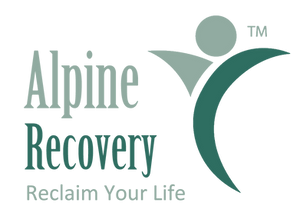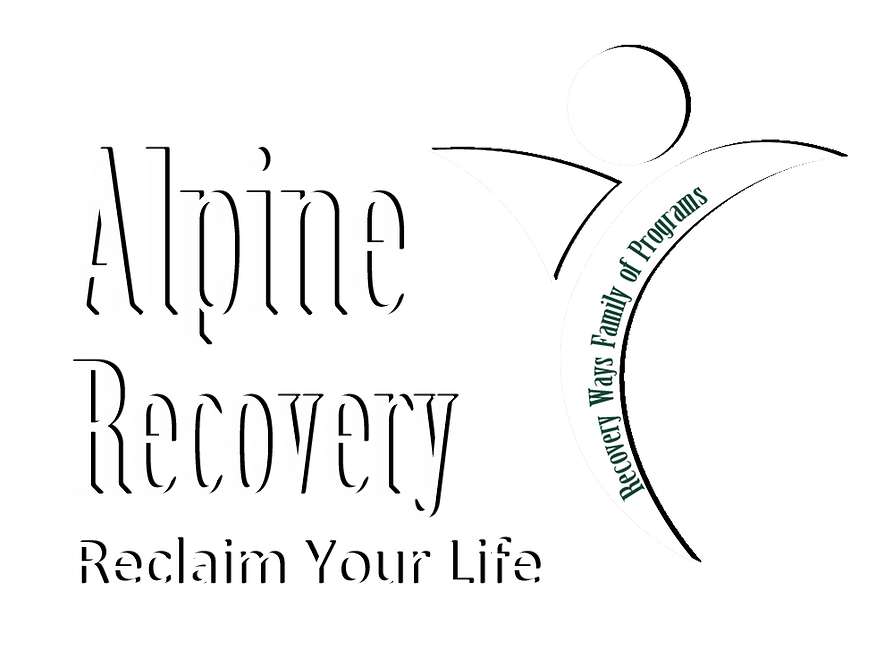The Importance of Comprehensive Treatment
Effective alcohol rehabilitation goes beyond mere cessation of alcohol use and delves into addressing the root causes and triggers of addiction. This is where the holistic approach of Everett alcohol rehab facilities, like Alpine Recovery, truly shines. They focus on healing the whole person, ensuring that treatment encompasses physical, emotional, and psychological dimensions.
Treatment facilities in Everett offer a spectrum of services, including detoxification, individual and group therapy sessions, and aftercare planning. These services are tailored to meet the specific needs of each individual, recognizing that the journey to sobriety is personal and unique. By utilizing evidence-based practices, these centers strive to provide support at every stage of recovery.
Inpatient vs. Outpatient Programs
Understanding the Differences
Inpatient programs provide a structured environment where individuals live at the facility for the duration of their treatment. This setup is ideal for those who require intensive care and constant supervision. In Everett alcohol rehab centers, inpatient programs often include detoxification, counseling, and various therapeutic activities aimed at fostering recovery.
Outpatient Options and Benefits
Outpatient programs, on the other hand, allow individuals to live at home while attending treatment sessions. This flexibility is beneficial for those who need to maintain work or family responsibilities while receiving care. Facilities like Alpine Recovery offer robust outpatient services that include counseling, group therapy, and education sessions, all aimed at supporting long-term sobriety.
Choosing between inpatient and outpatient programs depends on the severity of the addiction and the individual’s personal circumstances. Both have their unique benefits and are essential components of Everett alcohol rehab offerings.
The Role of Family in Recovery
Family plays a crucial role in the recovery process. Addiction is often referred to as a family disease, affecting not just the individual but their loved ones as well. Many rehab centers in Everett emphasize family counseling as part of their treatment plans. Alpine Recovery, for instance, offers programs tailored to involve family members, helping them understand the challenges of addiction and how they can best support their loved one’s recovery journey.
Family counseling sessions are designed to improve communication, build trust, and educate family members on the dynamics of addiction. This inclusive approach not only aids in the individual’s recovery but also strengthens family bonds, creating a supportive network that promotes long-term sobriety.
Integrating Holistic Approaches
Holistic treatments are an essential component of many Everett alcohol rehab facilities, complementing traditional therapy methods. Techniques such as mindfulness meditation, yoga, and nutritional counseling are increasingly incorporated into rehab programs to promote overall well-being.
At Alpine Recovery, these holistic practices are not mere add-ons but integral parts of the recovery process. Mindfulness practices, for example, help clients develop awareness and resilience, while nutritional counseling ensures physical health is restored alongside mental health.
By addressing the body, mind, and spirit, these holistic approaches contribute significantly to sustained recovery, ensuring individuals leave rehab equipped with skills for lifelong sobriety and well-being.
Customized Treatment Plans
One size does not fit all when it comes to addiction treatment. Recognizing this, Everett alcohol rehab centers often develop customized treatment plans tailored to the individual’s unique needs and goals. This personalized approach ensures that each client receives the most effective care possible.
Counselors and therapists at facilities like Alpine Recovery work closely with clients to assess their specific situation and craft a treatment plan that addresses personal triggers, underlying mental health conditions, and lifestyle considerations. This bespoke approach not only enhances treatment efficacy but also empowers clients by involving them in their recovery process.
Customization extends to aftercare planning as well, ensuring that clients have the resources and support necessary to maintain sobriety long after formal treatment has ended.
Importance of Continuing Care
Recovery doesn’t end when a program does. Continuing care is a vital part of the process, ensuring individuals stay on track post-treatment. Everett alcohol rehab centers recognize the importance of continued support to prevent relapse and foster sustained recovery.
Programs like those at Alpine Recovery include ongoing counseling, peer support groups, and educational workshops as part of their continuing care offerings. These resources provide a safety net for individuals as they transition back into everyday life, reinforcing the skills and strategies learned during treatment.
Commitment to continuing care reflects a deeper understanding of addiction as a chronic disease that requires long-term management. By providing these resources, rehab centers empower clients to build resilient recovery paths.
Community and Peer Support
Community and peer support are cornerstones of effective addiction treatment. Engaging with others who have faced similar challenges fosters a sense of belonging and reduces feelings of isolation. This aspect is emphasized in many Everett alcohol rehab programs, where creating supportive communities is central to the recovery process.
Alpine Recovery, for example, encourages participation in peer support groups like Alcoholics Anonymous or Narcotics Anonymous. These groups provide a platform for sharing experiences, challenges, and victories, which can be incredibly validating and encouraging for those in recovery.
Challenges and Rewards of Recovery
The path to sobriety is seldom straightforward, often filled with challenges and setbacks. Recognizing these difficulties is essential for anyone considering or undergoing treatment. Everett alcohol rehab centers prepare clients for these hurdles by equipping them with coping strategies and tools to handle cravings and triggers.
Despite the challenges, recovery also brings profound rewards. Clients often report improved physical health, greater emotional stability, and enriched relationships. The journey is transformative, offering individuals a renewed sense of purpose and the opportunity to rebuild their lives free from addiction.
As facilities like Alpine Recovery demonstrate, with the right support and commitment, lasting recovery is attainable, allowing individuals to lead healthier, more fulfilling lives.
What makes comprehensive treatment essential in alcohol rehab?
Comprehensive treatment is vital because it addresses the root causes and triggers of addiction, something I’ve seen time and again at Alpine Recovery. Instead of just focusing on stopping alcohol use, a holistic approach looks at physical, emotional, and psychological dimensions of the individual. Imagine trying to stop a leak without fixing the pipe–it’s the same with addiction. Without a full-spectrum approach, the underlying issues remain unaddressed. At Alpine, we ensure all aspects of a client’s life are considered, from detoxification to emotional support, making treatment more effective and sustainable.
How do I decide between inpatient and outpatient programs for alcohol rehab?
Choosing between inpatient and outpatient programs depends largely on the severity of the addiction and personal circumstances. Inpatient programs offer a controlled environment with 24/7 support, ideal for those who need intensive care. Outpatient programs, however, allow individuals to maintain their daily responsibilities while attending treatment sessions. At Alpine Recovery, we help clients assess their needs through a detailed evaluation to recommend the best option. It’s about finding a balance that supports recovery without overwhelming the individual. Ask yourself about your current commitments and the level of support you need to feel secure in your recovery journey.
Why is family involvement crucial in the recovery process?
Family involvement is crucial because addiction affects not just the individual, but everyone around them. At Alpine Recovery, we often see how family dynamics can either hinder or help recovery. By involving family members in counseling sessions, we aim to improve communication and rebuild trust, creating a supportive network. Picture a sports team; without everyone playing their part, it’s tough to win. Similarly, when families work together, it strengthens the individual’s resolve and provides a nurturing environment for recovery. Do you feel your family dynamics might influence your recovery journey? Engaging with them could be a pivotal step.
What role do holistic approaches play in alcohol rehab?
Holistic approaches are crucial as they complement traditional therapies by addressing overall well-being. At Alpine Recovery, we incorporate mindfulness, yoga, and nutritional counseling into our programs. These practices help clients develop resilience and restore physical health, both essential for long-term sobriety. Think of it like tuning an instrument; it’s not just about fixing the strings but ensuring the whole instrument is in harmony. By doing so, clients leave rehab not just sober but equipped with life skills that promote health and well-being. Which holistic practices do you think would be most beneficial in your recovery?
How are treatment plans customized for individuals in alcohol rehab?
Customization is at the heart of effective treatment because everyone’s journey with addiction is unique. At Alpine Recovery, we work closely with clients to understand their specific triggers and mental health conditions. Imagine tailoring a suit; off-the-rack rarely fits perfectly. The same goes for treatment plans–they need to fit the individual’s life and goals. Our team crafts these plans through assessments and ongoing dialogues, ensuring they are both effective and empowering. Reflect on your personal struggles and goals for recovery–how might a customized approach support these?
Why is continuing care important after formal rehab treatment?
Continuing care is crucial because recovery is a lifelong process. At Alpine Recovery, we recognize that support doesn’t end when you leave the facility. This is why we offer ongoing counseling and peer support groups. It’s like learning to ride a bike; the training wheels come off gradually as you gain confidence. These resources help prevent relapse by reinforcing learned strategies and providing a safety net. Consider how ongoing support might help you navigate life’s challenges post-treatment, making the transition smoother and more successful.
How do community and peer support enhance the recovery process?
Community and peer support offer a sense of belonging that’s invaluable during recovery. At Alpine Recovery, we emphasize community building because shared experiences reduce isolation and foster growth. Imagine being part of a book club; sharing insights makes the reading journey richer. Similarly, peer groups like Alcoholics Anonymous provide platforms to share struggles and victories, making the recovery path less daunting. Do you have a support network that understands your journey, or could peer groups provide that missing connection?
What are some common challenges and rewards of the recovery journey?
Recovery is challenging but profoundly rewarding. At Alpine Recovery, we find that clients often face initial struggles with cravings and lifestyle changes. It’s like climbing a mountain; the ascent is tough but reaching the top offers unparalleled views. Despite setbacks, clients frequently report improved health, emotional stability, and stronger relationships. These rewards make the arduous journey worthwhile. What challenges do you foresee in your recovery, and how might overcoming them transform your life?
Resources
- Substance Abuse and Mental Health Services Administration (SAMHSA) – SAMHSA is a government agency that leads public health efforts to advance the behavioral health of the nation. Their website offers a wealth of information on substance abuse treatment, prevention, and recovery.
- National Association for Alcoholism and Drug Abuse Counselors (NAADAC) – NAADAC is a professional association for addiction counselors and educators. Their website provides resources for addiction professionals and information on evidence-based practices in addiction treatment.
- National Institute on Drug Abuse (NIDA) – NIDA is a government agency that conducts research on the health aspects of drug abuse and addiction. Their website offers information on the latest research findings and treatment approaches for substance abuse.
- American Psychiatric Association – The American Psychiatric Association is a professional organization of psychiatrists. Their website contains resources on mental health, including substance use disorders, and provides information on finding a psychiatrist.
- National Alliance on Mental Illness (NAMI) – NAMI is a grassroots mental health organization dedicated to building better lives for those affected by mental illness. Their website offers resources for individuals and families dealing with mental health and substance use disorders.


